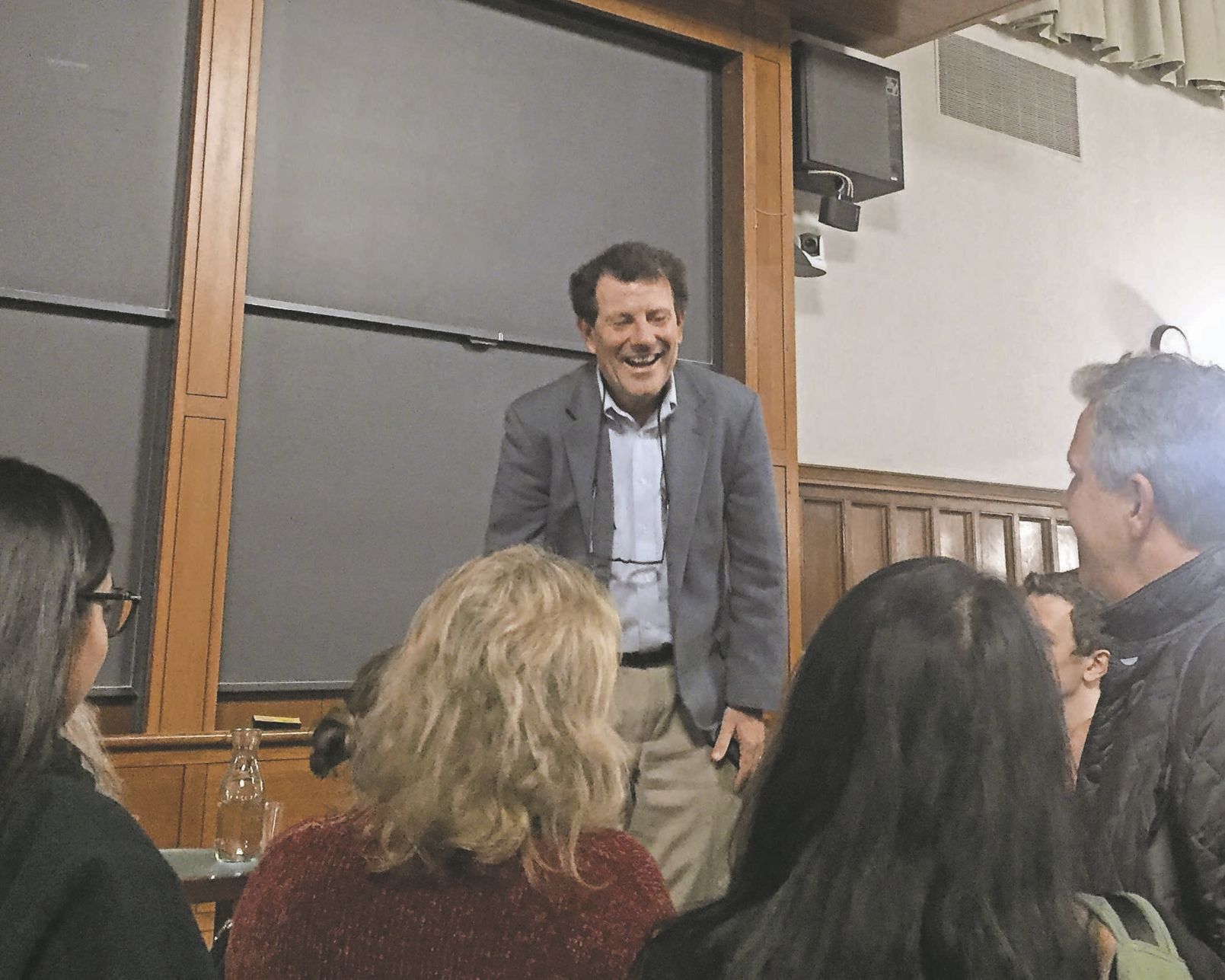By Ellie Schwartz, Correspondent
It is likely that the tensions between the United States and North Korea will only continue to rise, Pulitzer Prize-winning journalist Nicholas Kristof told an audience of more than 450 on Tuesday night.
“Kim Jong Un and President Trump are both instinctively inclined to escalate conflict,” New York Times Op-Ed columnist Kristof said during his talk at Princeton University. “It doesn’t work well on a playground, and it works even less well when you have powers with nuclear weapons.”
Kristoff has just returned from his most recent trip to North Korea, where he interviewed locals and stayed in a secure building to protect him from military and government groups who opposed his visit. He was troubled by North Koreans’ confidence in their ability to defeat the U.S. militarily and survive nuclear war.
“I think we should genuinely be very concerned,” Kristof said. “[North Korea] has really mobilized for war. There is a lot of talk of war.”
Kristof has more hope for progress in combating global poverty and extremism. He praised the effects of girls’ education and female empowerment in improving impoverished and war-torn areas as opposed to military action.
“The power of education is something the extremists understand perfectly,” Kristof said. “The greatest threat to extremism is girls with schoolbooks. We haven’t absorbed that same lesson.”
Kristof also spoke about poverty in the U.S. and the fact that the affluent donate a smaller percent of their incomes to charity as compared to Americans with low incomes. The reason is not bigotry or lack of empathy, he said, but the isolation of the elite from issues the rest of the population face.
“If you’re affluent in America, you’re insulated,” Kristof said. “You’re aware intellectually of the needs [of others], but you don’t encounter it every day.”
When people are insulated from domestic issues, it becomes easier for them to “create narratives” blaming poverty on personal irresponsibility and destructive behaviors.
“Anybody who has worked at the grassroots level knows that it’s infinitely more complicated than that,” Kristof said.
He also blamed the new media for today’s compassion fatigue. Readers read only about the topics that interest them on the internet, subscribing to what MIT Media Lab founder Nicholas Negroponte first described as “The Daily Me,” instead of reading about global crises or issues distant from them.
“What we want is not accurate, objective information,” Kristof said. “What we all want is an information stream that will confirm all of our own biases.”
When people are aware of issues and progress in fighting issues like global poverty, they are more likely to donate and volunteer in their own communities.
“I’ve truly become a believer in drops in the bucket,” Kristof said. “Our empathy or compassion should not be based on the color of somebody’s skin or the color of their passport.”

